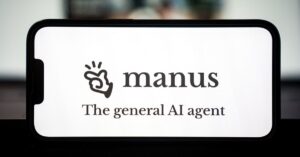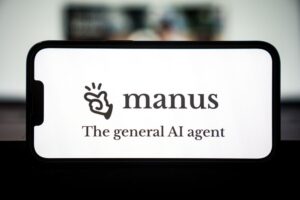Manus AI and the Governance Divide: Is the Global South at Risk of Being Overlooked?

The Launch of Manus: A New Era for AI
On March 6, 2025, a significant step in artificial intelligence was taken when the Chinese company Monica.im introduced Manus. This autonomous AI agent is capable of independent thinking and action, which sets it apart from existing AI models like DeepSeek. While DeepSeek focuses on generating content, Manus can make decisions and complete tasks on its own, without any human intervention.
The Capabilities of Manus
Manus has the potential to revolutionize industries by performing complex tasks on its own. Some of its applications include:
- Financial Analysis: Analyzing financial markets and making autonomous trading decisions.
- Recruitment: Screening candidates for various job positions without needing initial input from human recruiters.
- Travel Planning: Creating detailed travel itineraries based on user preferences.
This shift from traditional digital assistants marks a substantial change in how AI can operate, suggesting a future where such systems can independently influence economies and industries.
Opportunities and Challenges for Developing Nations
The Benefits of AI for the Global South
The introduction of advanced AI technologies like Manus presents numerous opportunities for developing nations:
- Increased Efficiency: Automation can streamline business processes across various sectors, enhancing productivity.
- Economic Growth: By optimizing operations, organizations can potentially generate more revenue.
- Enhanced Public Services: AI can aid governments in urban planning, administrative processes, and improving public safety.
Furthermore, AI can bridge the digital divide, offering access to services such as digital banking, online education, and telehealth to underserved populations.
Challenges Faced by Developing Nations
Despite these opportunities, the autonomous nature of AI also brings challenges that need to be addressed:
- Infrastructure Gaps: Many regions in the Global South lack sufficient digital infrastructure, internet connectivity, and reliable electricity, hindering AI adoption.
- Workforce Adaptation: The rise of AI could make many jobs obsolete, requiring urgent reskilling efforts to prepare workers for new opportunities.
- Regulatory Preparedness: Policymakers may struggle to keep up with AI advancements, leading to ineffective regulations that do not protect citizens.
For example, poorly regulated AI tools in law enforcement could lead to issues like mass surveillance, while unchecked financial AI systems may harm vulnerable communities through biased lending practices.
Strategies for Readiness in the Global South
Investing in Digital Infrastructure
Expanding internet access and improving electricity grids are vital steps for successful AI integration. However, affordability is equally crucial. Initiatives like the 2Africa project aim to enhance connectivity, but governments must provide affordable technology access to prevent widening the digital divide.
Developing AI Talent and Literacy
It’s essential to build a skilled workforce and enhance AI literacy across societies. Programs should not only target technical abilities among engineers but also promote understanding of AI ethics among policymakers and the general populace. Scalable educational platforms and engaging methods, such as mobile apps and gamification, can democratize AI skills acquisition.
Fostering International Collaboration
Collaborative efforts with other nations can enable technology sharing and define common standards. Countries like Indonesia have engaged in partnerships to bolster their AI ecosystems. Forums such as the Global South AI Forum and UNESCO are crucial platforms for representing the interests of developing nations.
Balanced global governance frameworks should be developed to ensure equitable access to AI technologies and prevent monopolistic practices. Drawing from existing models in telecommunications can provide a useful blueprint.
The Role of Regulators and Policymakers
Effective governance of AI technologies is crucial to mitigate risks associated with their deployment. Many decision-makers in the Global South may lack sufficient AI literacy, leading to potential regulatory weaknesses.
- Establishing Ethical Frameworks: It’s vital to create systems that uphold accountability and fairness in AI applications.
- Risk Management Frameworks: Countries should develop procedures to assess AI risks comprehensively.
- Creating AI Governance Models: Adapt successful examples, like Singapore’s AI Verify, to local contexts to maintain oversight and protect against biases inherent in AI systems.
Regional governance bodies can also help ensure that local interests are represented in international AI policymaking discussions. For instance, Malaysia’s establishment of a national AI office illustrates the importance of recognition and prioritization of AI in national strategy.
By navigating these challenges strategically, developing countries can embrace AI’s potential and make informed decisions that shape their economies and societies effectively.






